 |
Family Tiliaceae – Basswood, Linden, Lime 50 genera and 400 species; widespread in tropical and subtropical regions, with relatively few species in temperate regions. -Trees Index- |
Custom Search
|
This pendent linden does not seem to be all that weepy This tree is rather compact as lindens go. Branches should be well-spaced along a central trunk to allow for development of a durable structure. Left unpruned, crotches with embedded bark can develop but the wood is flexible so branches usually do not break from the tree. The tree is considered to have a strong branch structure.
|
Linden bracts and fruit. (Bracts are the very light green structures) |
|
50 genera and 400 species; widespread in tropical and subtropical regions, with relatively few species in temperate regions. Lindens are called Lime trees in Great Britain and The Commonwealth.
The Leaves of all the Tilias are heart-shaped and most are asymmetrical, and the tiny fruit, looking like peas, always hang attached to a ribbon-like, greenish yellow bract, whose use seems to be to launch the ripened seed-clusters just a little beyond the parent tree. The flowers of the European and American Tilias are similar, except that the American bears a petal-like scale among its stamens. Lindens are some of the most popular shade and street trees in North America. Their often pyramidal form is eminently suitable for specimen plantings. However, this genus is increasingly under attack by Japanese beetles in the American Midwest. |
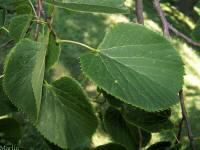 American Basswood |
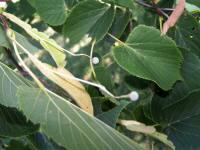 American Linden |
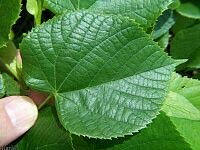 Big-leaved Linden |
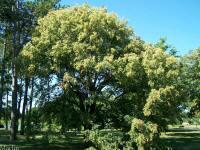 Chinese Linden |
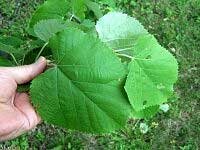 Upright Silver Linden |
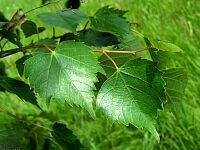 Mongolian Linden |
Pendent Silver linden |
Moltke Linden |
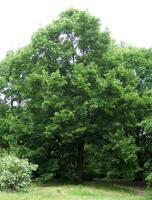 Redmond Linden |
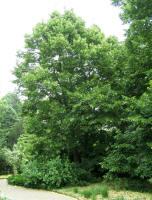 Little-Leaved Linden |
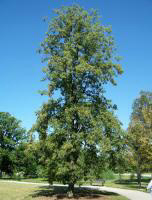 Crimean Linden |
 Silver Linden |
|
| Tree Encyclopedia / North American Insects & Spiders is dedicated to providing scientific and educational resources for our users through use of large images and macro photographs of flora and fauna. |
Family Tiliaceae – Basswoods, Lindens |
